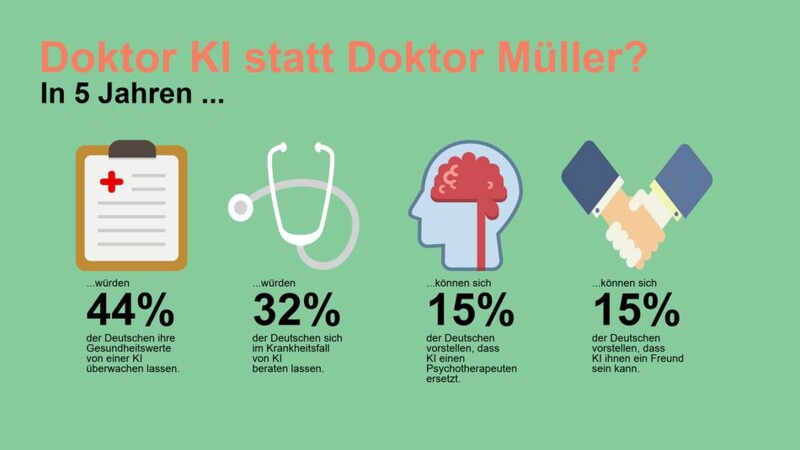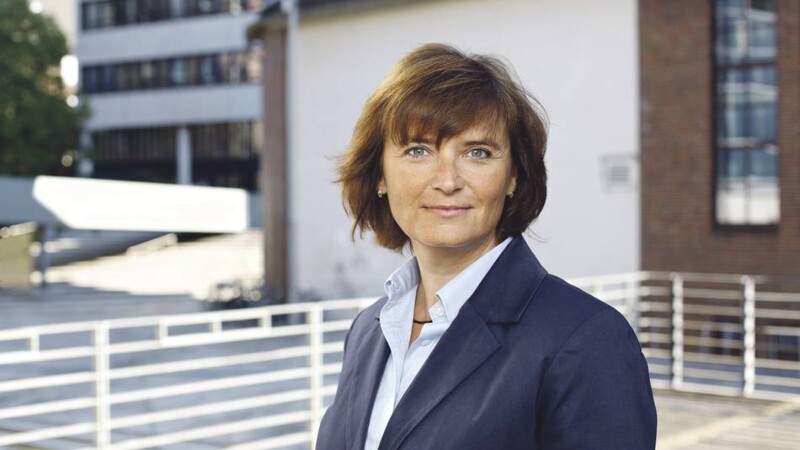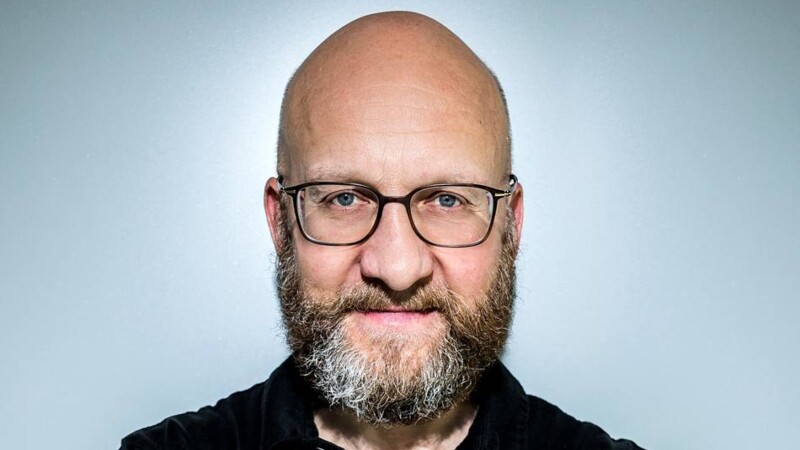This is a good way to approach AI. A look back over its history reveals that Britain and the United States have made the running in the field to date. In 1950, the English mathematician Alan Turing came up with an initial definition for AI with his Turing Test. When an answer coming from a computer can no longer be distinguished from that coming from a person, then that computer can be termed “intelligent.” In 1994 IBM’s Deep Blue beat Gary Kasparov, chess world champion at the time. In 2011, Watson (also developed by IBM) won the quiz show Jeopardy. And in 2015, Google DeepMind’s AlphaGo computer programme beat Go champion Fan Hui. Has the technological development in this field now progressed so far that it outdoes humans in all areas?
The aim is for Germany to lead the way in the artificial intelligence field. In mid November the German government presented its AI strategy with the aim of turning “Made in Germany” into a hallmark in this field. It was said to be of key significance for how Germany should work and produce in the future. “I’m happy to announce that we have been able to make EUR 3 billion available from the federal government up to 2025,” Angela Merkel said during a press conference at the cabinet’s retreat held to discuss the theme of digitalization. The government is working on the assumption that private investment will add a similar amount, with the resulting in that an additional investment of EUR 6 billion. The funds are meant to go primarily into research, with 100 new professorships planned.
A historical review: Turing test – Deep Blue – Watson – AlphaGo
A scientific review: Hamburg’s Horizonte
This was the question confronting the panel “Das überflüssige Ich – Künstliche Intelligenz, Robotik und die Zukunft der Arbeit” (The superfluous I – Artificial Intelligence, Robotics and the Future of Work) at this year’s “Horizonte“https://www.hamburg-news.hamburg/en/conventions-events/first-steps-towards-wissenschaftskolleg-taken-hamb/, held in Hamburg’s KörberForum until November 23. Although AI is not fundamentally new, the time now appears ripe for a significant shift. Computing capacity has soared, while prices have fallen. At the same time, increasing amounts of data are being generated that can form the basis for machine learning. “AI is coming closer, and the current situation is unpredictable,” Manuela Lenzen said on opening the discussion. The scientific assistant at the Centre for interdisciplinary Research (ZiF) at the University of Bielefeld and author of “Künstliche Intelligenz: Was sie kann & was uns erwartet” (AI: what it can do and what awaits us) asks: “Will we gain or lose jobs as a result of technological progress?”
Human uniqueness to the fore
“Routine tasks are increasingly being done better by machines,” according to Dennis J Snower of the Kiel Institute for the Global Economy. “A major change is coming down on us in this respect,” the professor added. For this reason, we should set up work in such a way that they cannot replace us but rather work alongside them. “Robots are not able to imitate co-operation and innovative ability or interpersonal relationships and social skills,” Snower insisted.
AI does not think – it’s a tool
The question remains: how long do we have left to shape things proactively? Susanne Biundo-Stephan, a professor at the AI Institute at Ulm University, does not foresee any major upheaval in the near future. There has rather been a great deal of exaggeration regarding AI and so-called “deep learning” – dealing with huge quantities of data to discern patterns. This technique has been used successfully in detecting tumours. “There are systems that are outstanding in a certain field, but there are no systems that are intelligent in an all-round way and could be seen as competing with humans,” she says. Michael Pauen, a philosophy professor at Berlin’s Humboldt University, agrees. “AI – in other words algorithms – are not able to think. They’re merely tools.”
Football-playing robots are fun
The experts agree that this means that robots and AI will not be able to replace us entirely, but they will change the world of work. However, it’s difficult to predict when this will happen. Taking a look at robots playing football. might help. Watching them is great fun – but there is certainly no recognizable threat to the Messis or Ronaldos of this world.
ys/rm/pb
Sources and further information
Hamburger Horizonte
This annual conference brings together top-flight academics, politicians, economic and cultural experts, as well as the wider Hamburg public. The aim is an open exchange on issues in science of particular interest to society. This conference series is being held in co-operation with the Academy of the Sciences, the Authority for Science, Research and Equal Opportunities, the University of Hamburg and the Körber Foundation. The first event in this format last year constituted the launch of the Hamburg Institute for Advanced Study (HIAS)
More information on: www.hamburger-horizonte.de
More
Similar articles

No need to fear artificial intelligence

Five promising fields for AI in medicine
